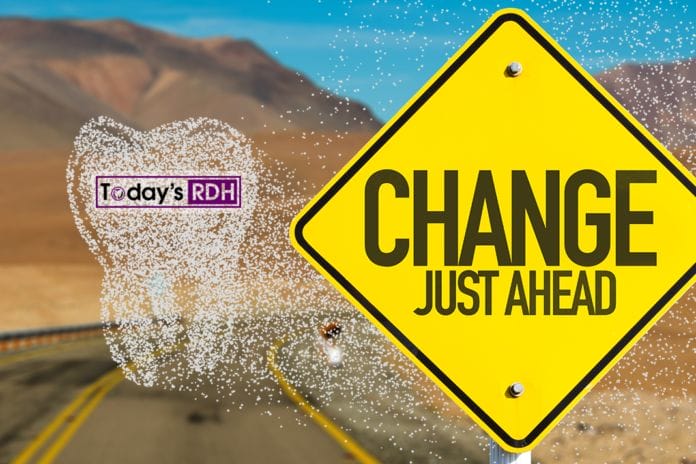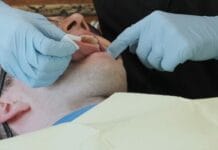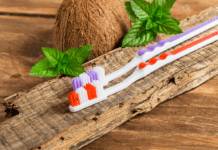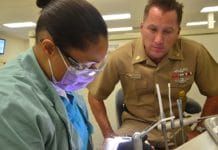During a recent continuing education event in Chapel Hill, NC, the speaker eluded over and over that change in dentistry IS coming to our beloved profession. If you were a dental hygiene graduate of 10, 15, or even 20 years ago, we have seen advances like none before, and more is on the way! Hygienists play a critical role in dentistry in oral health and hygienists now more than ever will need to embrace change, continue their education, and provide mid-level care.
In the late 90’s, when I was in school, you just began to hear the buzz of what we now call the oral-systemic link.
In fact, I remember in hygiene school, receiving one of those color flip charts displaying heart disease and it’s link to periodontal health. The use of ultrasonic scalers was primarily for “tough” patients, and heavy tenacious calculus; glassy root surfaces were the end result. Now, reflecting on change and innovation, I recall back to one day during lecture my second year in hygiene school and my instructor saying, “I see hygiene appointments moving to 6-week recare intervals and ultrasonic technology being the forefront of dental hygiene.“ WOW! Was she futuristic or what?
Now, I often wonder HOW did it take almost 20 years for oral-systemic health, ultrasonic technology, piezos and perio charting to be the hot topics in dentistry. I reflect back on my own career as a dental hygienist and think of all the advances that have come forward and how most hygienists today feel stuck, really really stuck! Today we witness how practices are driven by money and time and allow insurance to dictate treatment. It is too common to hear and see new patients whose last visit was five years ago, and in less than an hour, we are expected to dive into the bloody prophy battle. The question plaguing us now is, how can we complete a thorough exam, oral cancer screening, perio assessment AND provide excellent clinical debridement, while making our practice money? When I speak to hygienists’, often their #1 complaint is TIME! I found myself asking, how can I help bridge this gap?
During my career, I have been so fortunate to work for dentists and periodontists across the country as well as embrace a dental hygiene instruction. I have found my passion in education and believe that dental hygienists are critical in today’s oral health treatment. Not long ago, I founded a dental hygiene consulting business and felt like my calling was to help practices and hygienists, especially helping new graduates unite. When I think of dental hygiene students, and the mere two years it takes to gain licensure, it takes another 5 to really gain some clinical experience! Change must begin during their education, and we must gear our clinical care plan to reflect the modern change. As an educator, I can tell you it is a real challenge. I see a real need to assist young hygienist’s in an effort to enhance their skills and find mentorship, instead of being thrown into the real-world practice and “do the best you can.”
When I spoke to Kara about contributing to Today’s RDH, it struck a fire inside me! As healthcare professionals, we ARE lifelong learners, well, at least we should be. But how often do you see a CE lecture filled with yawning participants and disgruntled RDH’s saying that “my doc will never change that, or let us do THAT.” Change is difficult and challenging, and it takes all parties to commit to change! Sometimes it takes an outside vision to identify these gaps and help practices effectively develop their hygiene practice philosophy.
Today’s RDH is a platform for all hygienists. Change IS coming! You can ignore it, or resist it, or better yet embrace it. This publication is a way for professionals, educators, RDH’s of all levels- even students, to unite and embrace the change and motivate one another. Professionals need collaboration, mentors, and a variety of peers to take on the revolution coming in dentistry.
Just as hygiene students today are the hygienists of the future, veteran experts can lead the way and help mentor them along. I am so excited to contribute to Today’s RDH and help those experience change and embrace it.











